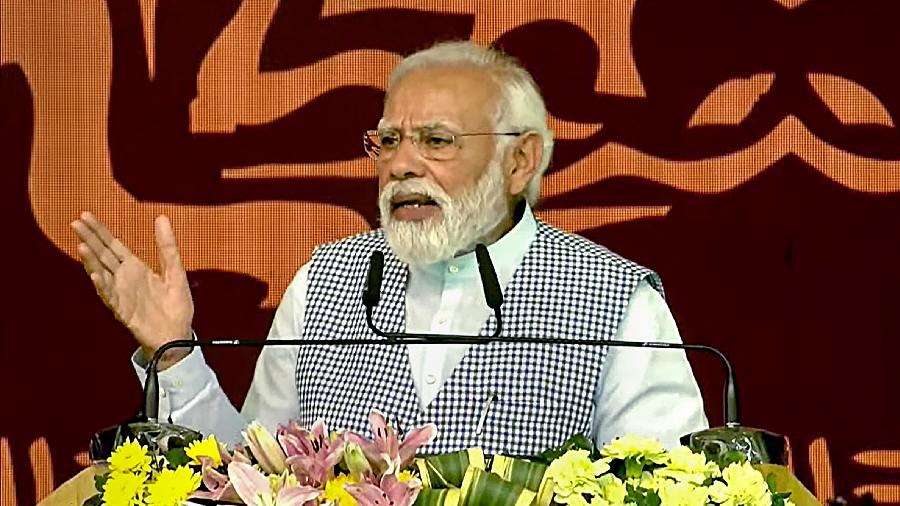Prime Minister Narendra Modi on Monday said every government since Independence worked to destroy the Panchayati Raj system and break the trust of the villages although some formalities (“khanapurti”) were carried out in the 1990s.
Ironically, he was speaking on the completion of 30 years of Panchayati Raj when the watershed 73th amendment to the Constitution of India came into force this day, April 24, in 1993. The Congress, which piloted the initiative, described it as “an important day of our political history” but Modi dismissed the change as “khanapurti” as he argued that the real empowerment started post-2014.
His own government, while announcing Monday’s programme at Rewa in Madhya Pradesh two days ago, described it as “the defining moment in the history of decentralisation of power to the grassroots”.
The Press Information Bureau (PIB) might not have been aware Modi saw the “defining moment” — envisaged by Rajiv Gandhi, the former Prime Minister who represented Jawaharlal Nehru’s legacy — as “khanapurti”.
Addressing a massive gathering in Madhya Pradesh, Modi claimed that his government after 2014 took upon itself the responsibility of strengthening the Panchayati Raj system. He hailed “nari-shakti” because a large number of women had been elected to the post of chairperson in panchayats in Madhya Pradesh, and accused previous governments of meting out step-motherly treatment to villages.
The truth is that the “nari-shakti” he was referring to had flown out of the reservation of one-third of the total number of posts for chairpersons in panchayats. The 73rd Amendment also reserved one-third of the seats for SC-ST candidates.
The Panchayati Raj system existed for ages and the makers of the Constitution were aware of its importance in independent India; Article 40 of the Constitution lays down that the State shall take steps to organise village panchayats and endow them with such powers and authority as may be necessary to enable them to function as units of self-government.
But Modi spoke of how he built more panchayat bhavans and linked them with optical fibre and finally gifted e-portals on Monday.
The Congress was not impressed, with the party’s communications chief Jairam Ramesh accusing the Prime Minister of systematically weakening the Panchayati Raj system. He said the Mahatma Gandhi National Rural Employment Guarantee Act (MGNREGA) was one of the most important schemes for the devolution of financial power to the panchayats and the Modi government was undermining it.
“Money for the MGNREGA goes into the accounts of gram panchayats directly from the Centre. The state is not involved. But the Modi government wants to weaken the MGNREGA. Today, 2.5 lakh gram panchayats don’t get enough money,” Ramesh said.
Recalling that the BJP had contributed to the defeat of the Constitution amendment in the Rajya Sabha in 1989 when the bill fell by five votes, Ramesh said the 73rd Constitutional Amendment Bill became an Act on April 24, 1993, during the P.V. Narasimha Rao government. The decision to observe April 24 as the Rashtriya Panchayati Raj Diwas was taken in 2010 when Manmohan Singh was Prime Minister.

